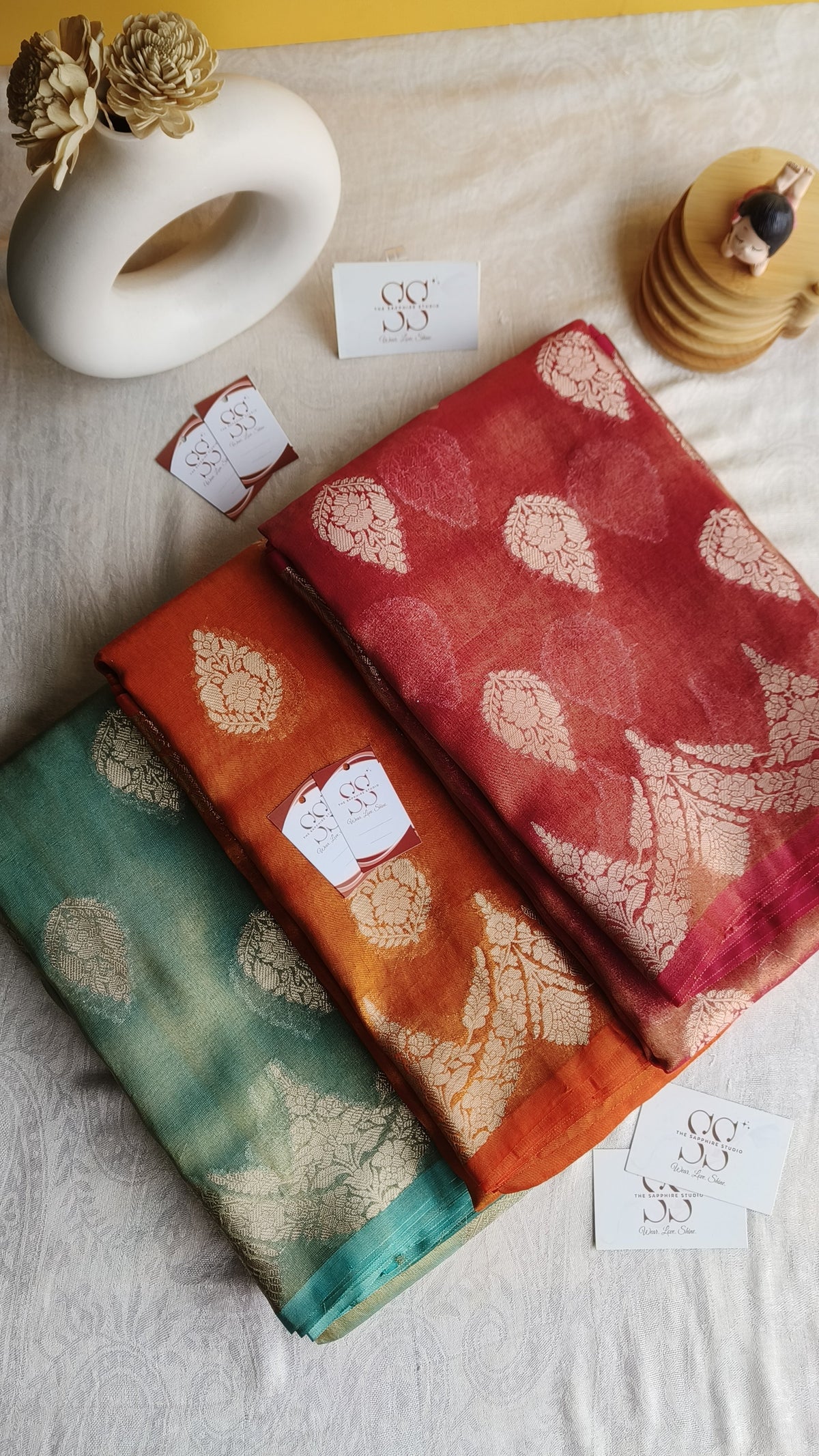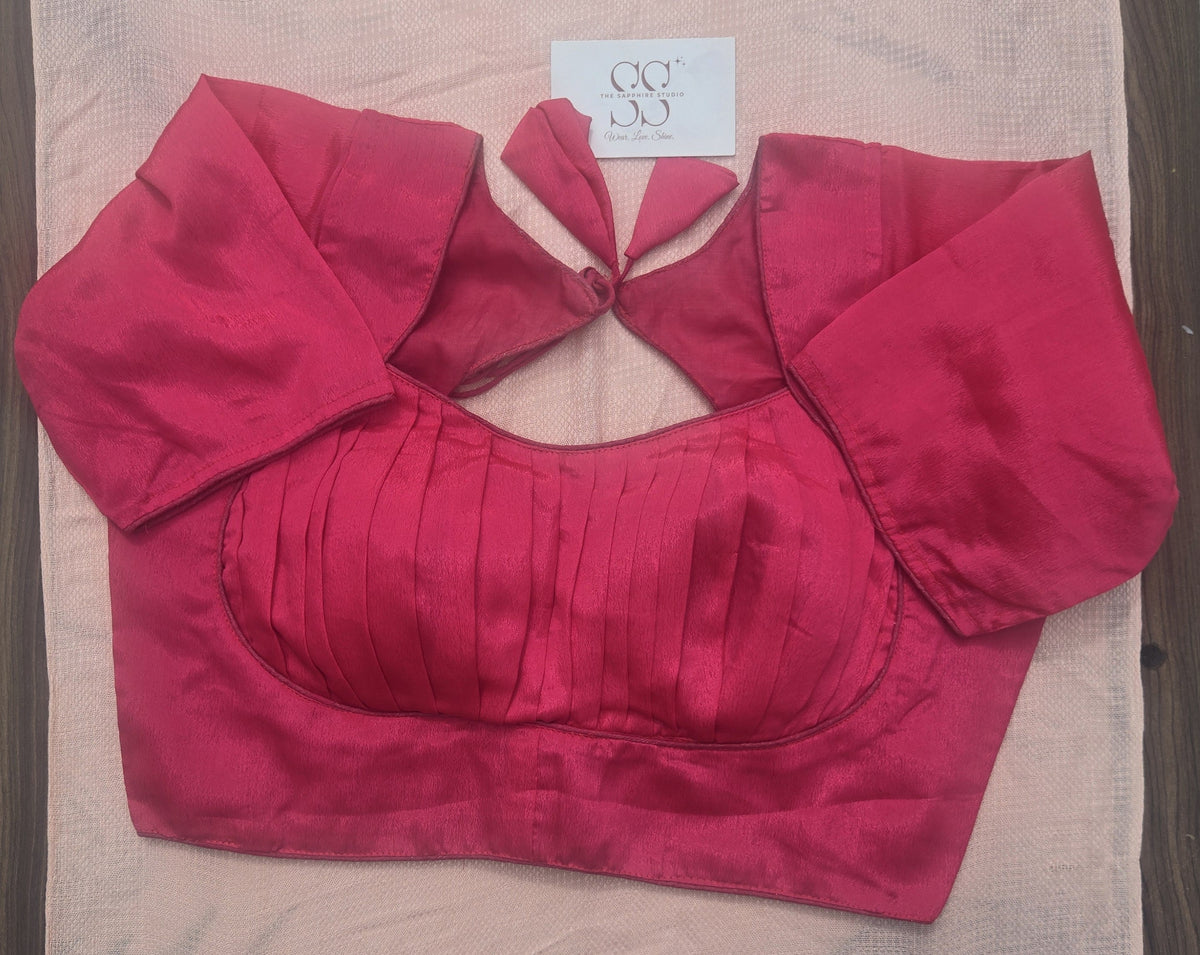Caring for Your Sarees
Because she’s more than just fabric — she’s part of your story.
She’s elegant, timeless, and made to shine — just like you. ✨
Let her stay beautiful for years to come with a little everyday love.
🧼 Washing Tips by Fabric
Silk Sarees
-
Dry clean is always best — especially for the first few wears.
-
For occasional hand washes: use cold water, mild detergent, and never soak too long.
-
Avoid wringing or scrubbing. Always dry in the shade.
Cotton Sarees
-
Wash separately in cold water for the first few times to prevent color bleeding.
-
Prefer hand wash or gentle machine cycle.
-
Dry in shade, never direct sunlight — it causes fading.
-
Light starching brings back crispness if needed.
Tissue & Organza Sarees
-
Never wring. Dry flat to avoid pulling the weave.
-
Spot-clean if possible; full wash only when needed.
-
Always fold with tissue paper between pleats to prevent creasing.
Bandhani & Gharchola Sarees
-
Dry Clean Only – especially before the first wear or wash.
-
Color Bleeding is Natural – a little color bleeding is expected due to the traditional dyeing process; it does not affect the beauty or longevity of the saree.
-
Why This Happens – these sarees are dyed using age-old resist-dye techniques with rich, deep colors. Hand-bound dyes may release slight excess color when exposed to moisture.
-
Avoid Home Wash – do not soak or handwash, as it may spread color or damage the intricate zari.
🔥 Ironing Tips
-
Always iron on the reverse side.
-
Use low to medium heat only.
-
For zari, sequins, or embellished sarees — place a thin cotton cloth between the iron and saree.
-
Steam iron is ideal for organza, tissue, and lightweight silks — helps retain natural fall and avoids scorch marks.
📦 Storing Your Sarees Right
-
Use muslin or cotton cloth wraps to let the fabric breathe.
-
Refold every 3–4 months to prevent permanent creases.
-
Never let zari borders touch each other — it can cause dullness or snags.
Zari & Border Care
-
Wipe with a dry soft cloth after use.
-
Store in a cool, dry place. Avoid plastic covers — they trap moisture.
-
Use anti-tarnish strips for high zari or metallic weaves.
♻️ How to Revive an Old Saree
-
Get it re-dyed or converted into a dupatta, blouse, or half-saree.
-
Add new borders or tassels for a modern twist.
-
Use faded sarees as layering drapes, stoles, or even framed decor!
She’s not just a saree.
She’s a memory, a moment, a piece of your journey.
Wear her proudly.
Care for her gently.
Pass her on — with love.
With love,
The Sapphire Studio
💛 Wear. Love. Shine.



